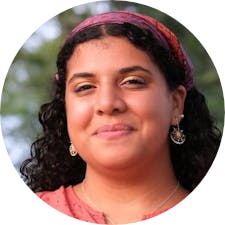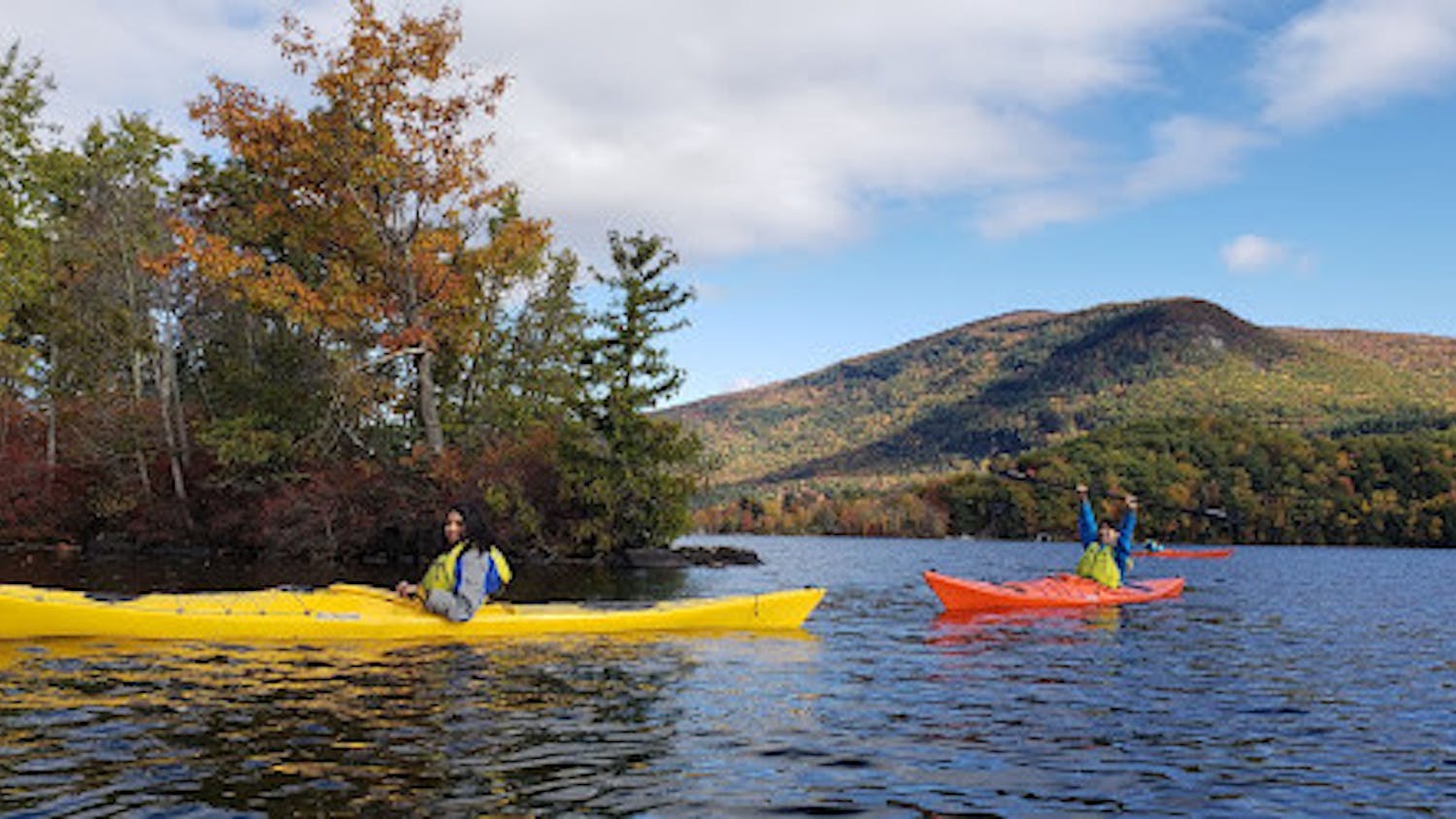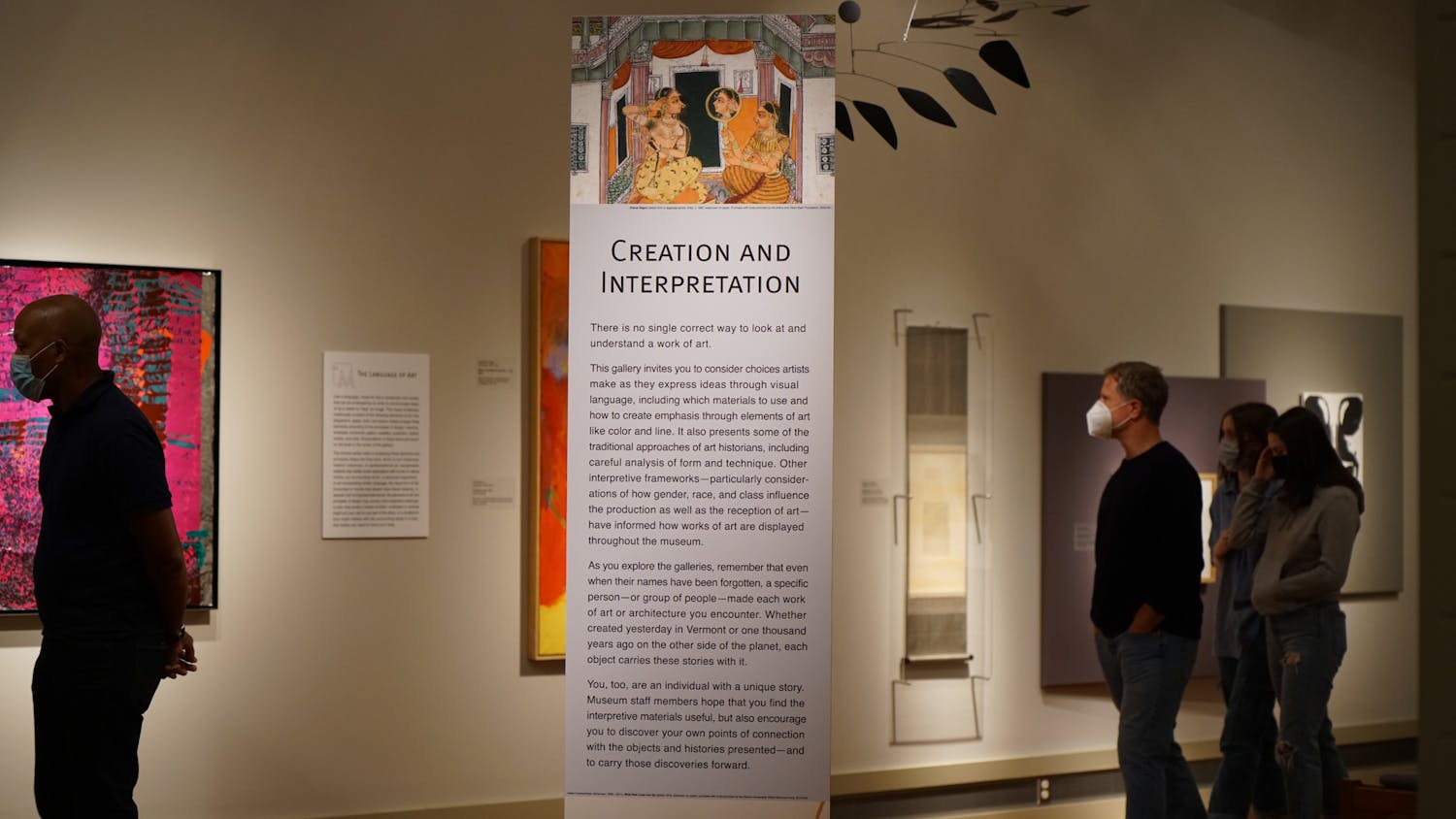It goes without saying that “Black Lives Matter” has become a household term. The founders of the movement, however — Patrisse Cullors among them — are much less widely known. When I received a promotional email from the Middlebury College Activities Board (MCAB) that Cullors would be giving a talk on April 15, it felt like a huge deal to me. However, I quickly realized that this wasn’t necessarily a shared sentiment: when I asked around, people either didn’t know the event was happening or didn’t know who Cullors was. I was still surprised, however, when I walked into a mostly empty Wilson Hall last Friday night.
To give people the benefit of the doubt, it’s possible that they just missed the emails from MCAB about the event or had other things to do on a Friday evening. But I wonder if the lack of attendance from our community also reflects a shifting sentiment on campus, especially as we near the two-year anniversary of the “Black Lives Matter summer,” a movement sparked by the murder of George Floyd in May 2020. If this talk had occurred in fall of 2020, I would be willing to bet that the attendance would’ve been much higher – maybe because BLM was “cooler” then, or maybe just because it was on the forefront of everyone’s minds (and Instagram feeds).
During the talk, Cullors herself noted how useful social media has been in raising awareness about certain issues and mobilizing people towards action. Social media organizing is what led to “20 million people around the world standing up for Black lives in 2020,” according to Cullors, despite the fact that we were at the height of the pandemic. Simultaneously, she emphasized the necessity of “getting off our screens and showing up for each other” in real life as well.
The talk happened at the end of a week during which a shooting occurred on a subway in NYC. During the same week, here at Middlebury, the Muslim Student Association (MSA) room in Forest basement was desecrated. As a New Yorker and Muslim, I witnessed a lot of people reposting info about both events in my social media feeds.
When faced with atrocious acts of violence on a national level, in combination with acts of violence on our very own campus, it can feel overwhelming to know how to react. Posting on social media is an easy way to show where you stand on an issue, indicate that you’re tuned into current events and spread awareness. There’s nothing inherently wrong with doing this — the issue is when it’s your primary or only way of engaging with issues (something that I’ll admit to having been guilty of in the past).
Because posting on social media can only achieve so much.
While I’m grateful for the amount of MiddKids who have posted about the MSA incident and expressed disgust or frustration with the event and the administration’s handling of it, there came a point where I dreaded seeing posts about it. The posts on my feed became a hollow reminder of the incident and the feelings of trauma, discomfort and lack of safety it brought up for me rather than a show of support. I would much rather have had people text and check on me (which a few of my friends did!), or in the spirit of Ramadan, donate to organizations dedicated to uplifting and supporting Muslims — a group of people who continue to face daily acts of violence and Islamophobia both on a national and international scale.
I’ve spent a lot of time over the past few weeks thinking about the question of safety, even before attending Cullors’ talk. Who keeps us safe? Who inherently feels the privilege of safety? Whose lives do we rally around when they’re threatened?
Both the MSA incident and the subway shooting might seem to indicate a need for increased “security” by way of surveillance. But if anything, the opposite is the case. I wouldn’t feel any safer or more comfortable if Public Safety officers were to patrol the halls of Forest to ensure the prevention of similar incidents in the future. Nor do I feel safer when encountering police officers on my subway rides at home. In fact, many people were quick to point out that the NYC subway system is already overpoliced, a situation which clearly did nothing to prevent last week’s shooting.
Who keeps us safe? We do. At least, that’s the sentiment behind abolition work, which Patrisse Cullors’ talk brought back to the forefront of my mind. Instead of relying on top-down structures of security, where we look outwards to Public Safety officers, police officers, etc to keep us safe, an abolitionist mindset encourages us to look out for each other and “create a new system that’s steeped in an economy of care, deeply connected to the role that all beings play,” as Cullors said.
Of course, this concept is a lot easier to support in the abstract when it doesn’t apply to you personally.
In response to the MSA incident, I’ve seen people call for a range of actions from the administration, including expulsion of the person responsible. As a Muslim on this campus who felt personally victimized by this attack, my inherent impulse is to agree with this punitive mindset. I’m tired of Muslims being over-surveilled and disproportionately punished. Moreover, I’m fed up with those who commit acts of violence against Muslims receiving little to no repercussions. As someone who identifies as an abolitionist, however, I know that a punitive response is only a “bandaid” solution and doesn’t actually do anything to address the harm and trauma other Muslim students are feeling. Nor does it do anything to counter Islamophobic sentiments on campus. However, a restorative justice circle (or something along those lines) doesn’t feel like something I'd want to engage in with the perpetrator of the incident, even though that’s what an abolitionist framework would entail.
Which is to say: abolition is messy, and difficult and nuanced. It’s a framework that I’m still working through and learning about, and the process can be really exhausting and overwhelming at times. Associate Professor of Dance and Director of the Anti-Racist Task Force Christal Brown, who moderated Cullors’ talk, addressed this in one of her questions: “How do we maintain the stamina to continue to fight and question our own dependence on this system that’s not working?”
It’s a question that I certainly don’t have the answer to. But I’d like to think that leaning into community, joy, and connection, all of which Cullors highlighted in her response, is a good place to start. I was also struck by Cullors’ point that grappling with systemic oppression has been both deeply distressing and deeply liberating. That feels like an important mindset to try to emulate: While there is so much (un)learning to do, it’s also deeply freeing to extricate yourself from narratives that have historically served those with privilege and power. Because abolition isn’t just about tearing down the systems currently in place — it’s about envisioning entirely new ways of being, both physically and mentally, such as actively making the choice not to police ourselves or each other (which is, again, easier said than done).
Cullors closed out the talk by sharing advice for future community organizers or anyone looking to create positive change. She emphasized the necessity of collaboration, stating: “Don’t try to do this work alone. It’s not a solo event, it’s not a hero show. We do this as a collective, together.” For those not sure of where to start, she encouraged them to join something.
“And if it doesn’t exist, start it,” she said.

Daleelah Saleh ’23 is an Opinions Editor.
She intends to pursue an International Global Studies major with a Global Gender Studies track.
Her coverage at The Campus has included contributions to arts and opinion. In addition to working at The Campus, she is a peer writing tutor at the CTLR and has been involved with WRMC, Verbal Onslaught, and Oratory Now.



